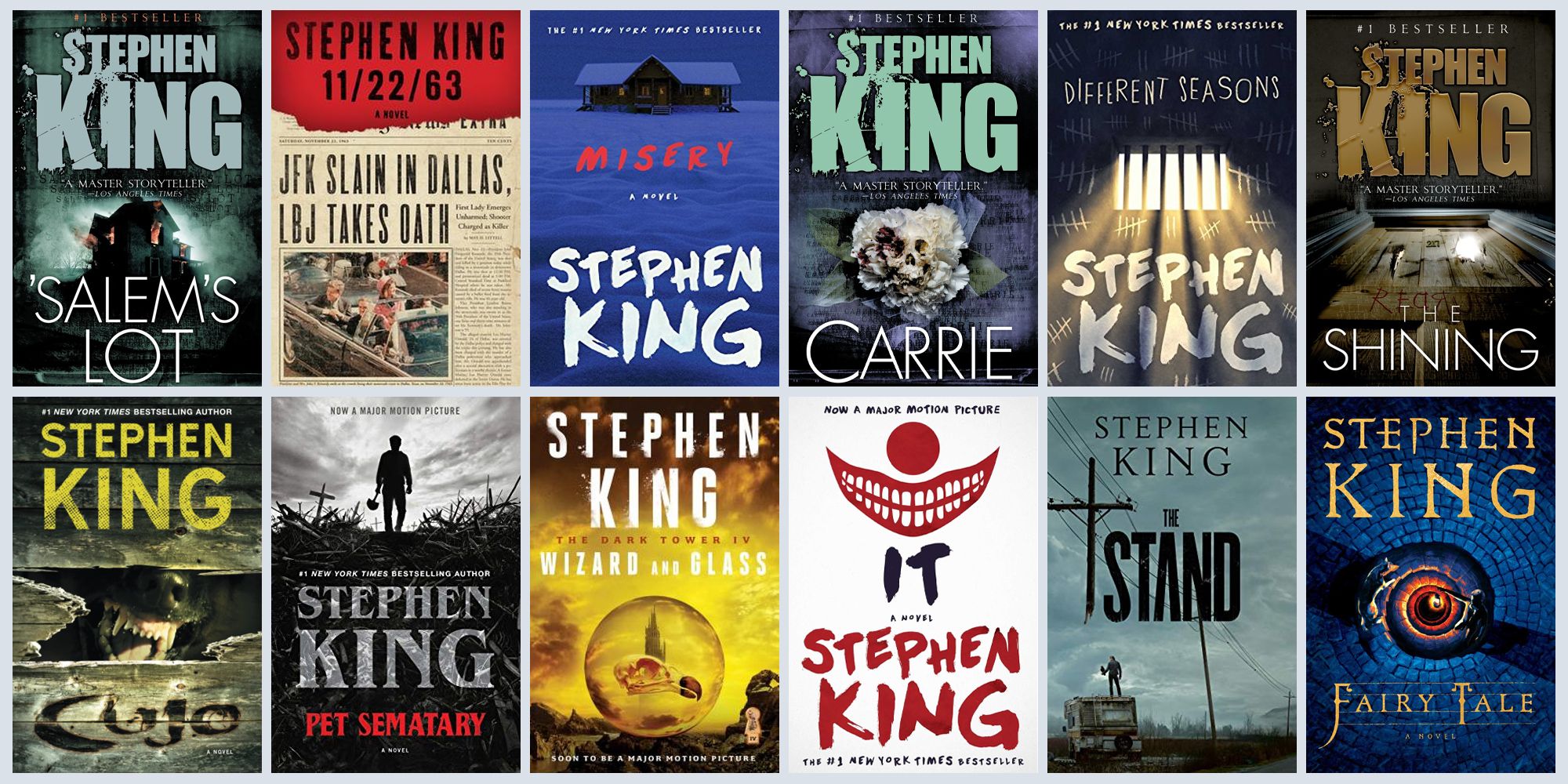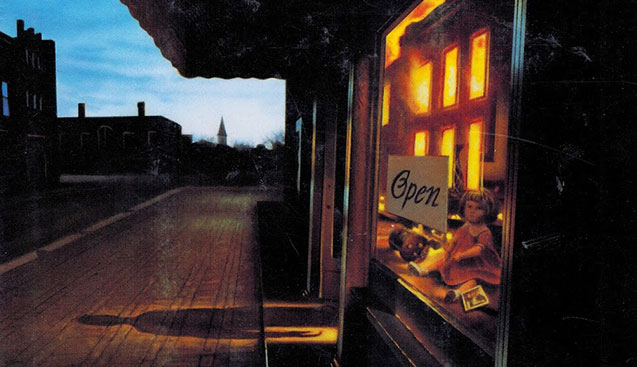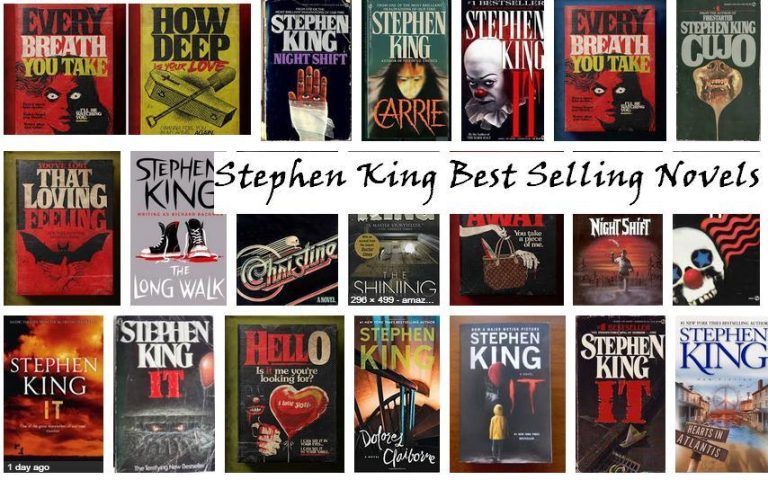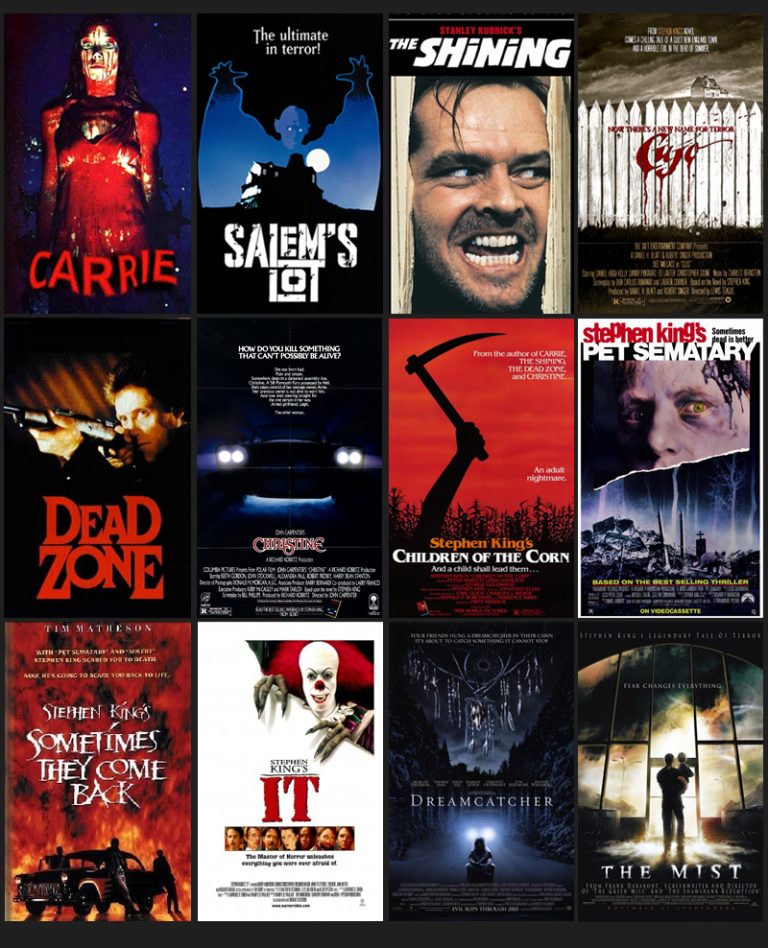Are There Any Stephen King Books Based On Real Events?
If you’re a fan of Stephen King, you know that his books are filled with spine-chilling tales and vividly imagined worlds. But have you ever wondered if any of his stories are based on real events? Well, you’re in luck! In this article, we’ll explore the intriguing question, “Are there any Stephen King books based on real events?” So, grab a cup of coffee, settle in, and get ready to dive into the fascinating world of Stephen King’s fiction.
Stephen King is a master storyteller known for his ability to captivate readers with his unique blend of horror, suspense, and supernatural elements. While many of his stories are purely products of his imagination, there are a few that draw inspiration from real-life events. In fact, King himself has acknowledged that some of his novels were influenced by true stories or personal experiences. So, if you’re curious to know which of King’s books have ties to reality, keep reading! We’ll uncover the truth behind these spine-tingling tales and explore the real events that inspired them. Get ready to be amazed and perhaps a little bit scared as we delve into the world of Stephen King’s books based on real events.

Are There Any Stephen King Books Based on Real Events?
Stephen King is a renowned author known for his captivating horror and suspense novels. Many of his stories have become iconic and have left readers wondering if they were based on real events. In this article, we will explore whether there are any Stephen King books that draw inspiration from real-life occurrences.
The Inspiration Behind Stephen King’s Novels
Stephen King has a unique ability to create intricate and terrifying worlds within his novels. While his stories may seem incredibly realistic, most of them are purely products of his vivid imagination. King often draws inspiration from his own experiences, childhood memories, and the world around him. However, it is important to note that his books are fictional and not directly based on real events.
It: A Fictional Tale of Childhood Fears
One of Stephen King’s most popular novels, “It,” tells the story of a group of children who confront a malevolent entity terrorizing their town. While the novel may feel incredibly real, it is not based on any specific real-life events. King masterfully weaves together elements of horror, coming-of-age themes, and psychological terror to create a captivating narrative that resonates with readers.
The inspiration for “It” came from King’s own childhood experiences and fears. Growing up in a small town, he often explored the woods and encountered unsettling situations. These memories, combined with his fascination with the power of fear, led to the creation of the iconic Pennywise the Dancing Clown and the haunting town of Derry.
The Shining: A Haunting Tale of Isolation
Another well-known Stephen King novel, “The Shining,” explores the psychological descent of a struggling writer named Jack Torrance. As he and his family spend the winter in an isolated hotel, supernatural forces begin to unravel their sanity. While “The Shining” may feel chillingly realistic, it is not based on a true story.
King drew inspiration from his own struggles with alcoholism and the isolation he experienced while living in a remote hotel. The novel delves into themes of addiction, family dynamics, and the horrors that can arise from within one’s own mind. The eerie atmosphere and unforgettable characters have made “The Shining” a classic in the horror genre.
Separating Fiction from Reality
When discussing Stephen King’s books, it is crucial to differentiate between fiction and reality. While his novels may draw inspiration from real-life events or experiences, they are ultimately works of fiction. King’s ability to create immersive and terrifying worlds is a testament to his exceptional storytelling skills rather than a reflection of real events.
It is worth noting that some of King’s novels may contain elements that resemble or reference real-life events, but they are fictionalized and exaggerated for dramatic effect. The purpose of these references is to enhance the narrative and evoke powerful emotions from readers.
The Influence of Real Events
Although Stephen King’s books are not based on real events, they often reflect societal issues, fears, and anxieties prevalent during the time they were written. For example, “Carrie” explores themes of bullying and adolescent angst, while “The Stand” delves into the impact of a global pandemic. These themes resonate with readers because they tap into real-world concerns, but the stories themselves remain works of fiction.
King’s ability to weave relevant social commentary into his novels is what sets him apart as a master storyteller. By addressing universal fears and anxieties, he creates a sense of familiarity and connection with his readers, even within the realm of the supernatural.
In Summary
While Stephen King’s novels may feel incredibly real and draw inspiration from his own experiences, they are not based on specific real events. King’s storytelling prowess lies in his ability to create captivating narratives that resonate with readers on a deep level. His books reflect societal issues and fears, but they remain works of fiction that transport readers into thrilling and terrifying worlds. So, the next time you pick up a Stephen King book, remember that you are entering a realm of imagination rather than a retelling of real events.
Key Takeaways: Are there any Stephen King books based on real events?
- Stephen King often draws inspiration from real-life events and incorporates them into his books.
- Some of his books, like “The Shining,” are not directly based on real events but are influenced by real-life locations and experiences.
- “Misery” is loosely based on a real-life incident involving a crazed fan and a famous author.
- “Carrie” was inspired by a news article about girls with telekinetic abilities.
- While not based on real events, Stephen King’s writing often reflects societal fears and anxieties.
Frequently Asked Questions
Stephen King is known for his captivating and imaginative storytelling, often blurring the lines between reality and fiction. While many of his books are entirely products of his brilliant imagination, there are a few instances where his stories have been inspired by real events. Here are some frequently asked questions about Stephen King books based on real events:
1. Did Stephen King write any books based on real events?
Yes, Stephen King has written several books that were inspired by real events. One notable example is his novel “Misery,” which tells the story of a famous author held captive by an obsessed fan. King has stated that the book was partly inspired by his own experiences with obsessive fans and the pressures of fame.
Another example is “11/22/63,” a novel that revolves around time travel and the attempt to prevent the assassination of President John F. Kennedy. While the story is fictional, it is heavily influenced by the real-life events surrounding the JFK assassination.
2. Are there any other Stephen King books based on true stories?
Yes, there are a few other Stephen King books that draw inspiration from true stories. One such book is “The Green Mile,” which tells the story of a death row supervisor and his encounters with a mysterious inmate with supernatural powers. The book was inspired by King’s fascination with the paranormal and his research into the history of the death penalty.
Additionally, “Carrie” is another novel that incorporates elements of real-life events. While the story itself is fictional, King drew inspiration from his own experiences as a high school teacher and the dynamics of teenage social hierarchies.
3. How does Stephen King incorporate real events into his books?
Stephen King often takes inspiration from real events and incorporates them into his stories by adding a supernatural or horror element. He uses these events as a backdrop to explore themes of fear, loss, and the human condition. By blending reality with fiction, King creates a sense of familiarity and plausibility that enhances the reader’s immersion in his narratives.
Additionally, King’s ability to tap into the collective fears and anxieties of society contributes to the realism of his stories, even when they are based on fantastical or supernatural elements.
4. Are there any precautions Stephen King takes when writing about real events?
As a responsible author, Stephen King takes precautions when incorporating real events into his books. He ensures that his fictionalized versions of these events do not disrespect or exploit the individuals involved. King also makes it clear that his stories are works of fiction and not intended to be accurate portrayals of real events or people.
Furthermore, King often provides disclaimers or author’s notes in his books to clarify the boundaries between reality and fiction, reminding readers that while his stories may be inspired by real events, they are ultimately products of his imagination.
5. Why does Stephen King draw inspiration from real events?
Stephen King draws inspiration from real events because they provide a rich source of material for his storytelling. Real events often carry emotional weight and resonate with readers on a deeper level. By incorporating elements of reality into his books, King is able to create narratives that feel grounded and relatable, even in the midst of supernatural or horrific scenarios.
Furthermore, drawing inspiration from real events allows King to explore social and cultural issues in a thought-provoking manner. He uses his stories as a platform to engage with the fears, anxieties, and complexities of the world, offering readers a unique blend of entertainment and introspection.
Stephen King Reveals His Top Five Stephen King Stories
Final Thought: The Real Events Behind Stephen King’s Books
When it comes to the captivating world of Stephen King’s novels, readers often find themselves wondering if any of his stories are based on real events. While Stephen King is known for his vivid imagination and ability to create spine-chilling tales, it’s fascinating to discover that some of his works do have roots in reality. Although the events in his books may be exaggerated or fictionalized, King often draws inspiration from real-life experiences, adding an extra layer of intrigue to his storytelling.
One prime example of this is King’s renowned novel, “The Shining.” While the story of the haunted Overlook Hotel and its tormented caretaker, Jack Torrance, is purely fictional, King was inspired by his own experiences staying at The Stanley Hotel in Colorado. The eerie atmosphere and rumored ghostly encounters at The Stanley Hotel served as the foundation for King’s unsettling tale. This connection to reality adds a chilling authenticity to the supernatural events depicted in the novel.
Another notable instance of King’s use of real events is found in his novel, “Misery.” This gripping story revolves around a famous author held captive by his obsessed fan. King has revealed that he drew inspiration from real-life events where fans became overly fixated on him and his work. By incorporating these personal experiences into the narrative, King creates a sense of unease and blurs the line between fiction and reality.
In conclusion, while Stephen King’s books may not be direct retellings of real events, they often contain elements that are inspired by the author’s own encounters or incidents that have captured his attention. By infusing his stories with these real-life inspirations, King enhances the believability and relatability of his narratives. So, the next time you dive into one of Stephen King’s chilling tales, remember that even the most fantastical stories can have a connection to our own world.






